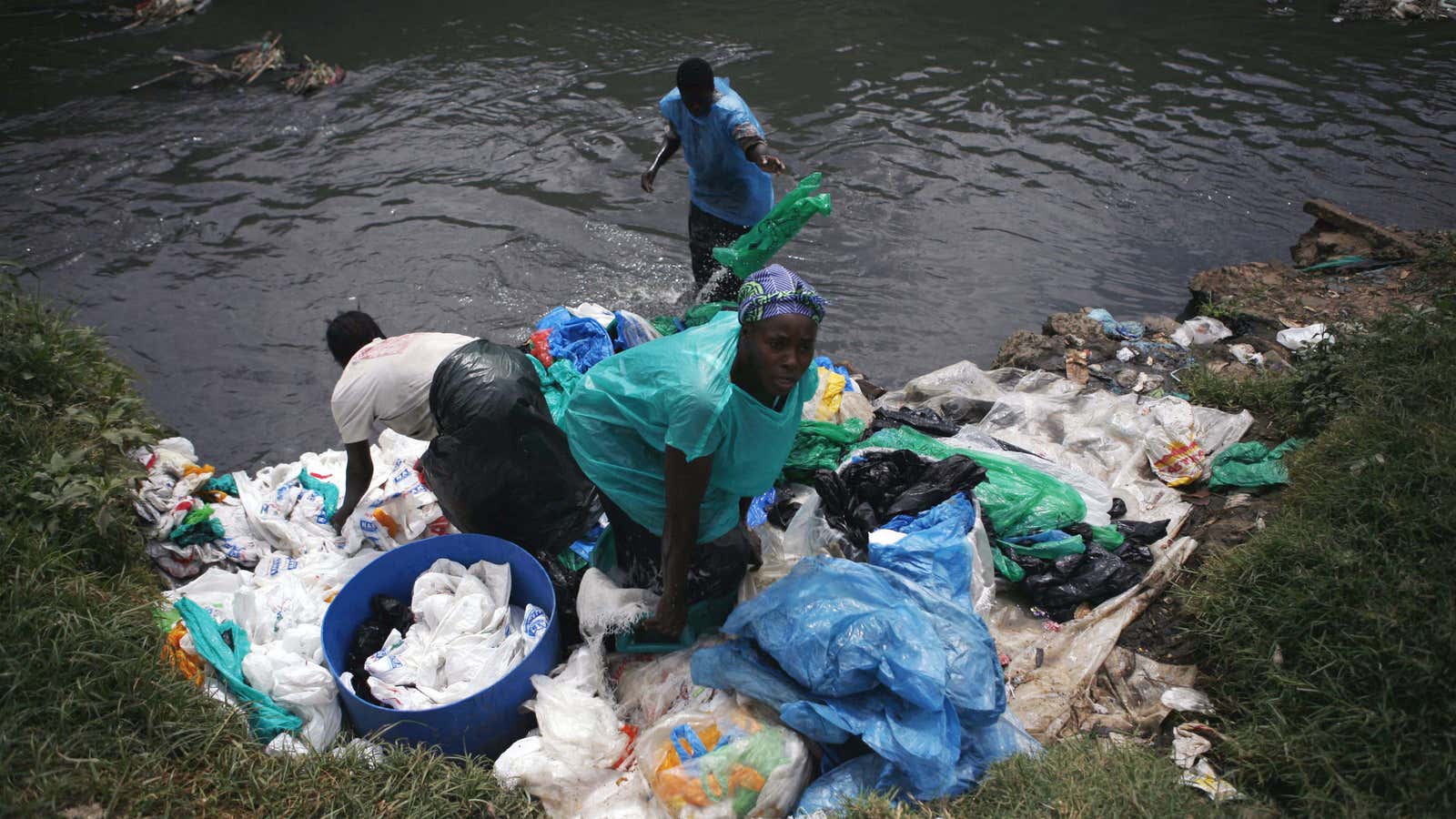It is now illegal to use, manufacture, or import plastic bags in Kenya, according to a new rule that goes into effect this week. Offenders will be fined as much as $38,000, or serve up to four years in jail. Travelers coming into Kenya with plastic bags will have to leave them at the airport.
Kenya joins a list of almost a dozen African countries that have tried to ban the bags that environmentalists say harm both soil and water, and mar tourist sites. In Kenya, where an estimated 24 million plastic bags are used every month, the carriers litter most roadsides and clog sewers and streams.
Critics say the policy is elitist, while others say it’s just unrealistic. Traders don’t seem prepared for using alternative materials. Regulators failed to implement a similar ban a decade ago. In Rwanda, where plastic bans are also banned, some residents smuggle in the bags from neighboring Congo.
The majority of Kenyans are part of what’s known as the kidogo, or “small” economy, based on small amounts of food, charcoal, and other daily items that people buy and sell, writes Leah Oyake-Ombis, a researcher at the University of Nairobi. Plastic bags, the cheapest way to carry and transport goods, are a key part of this trade. A better strategy, according to Oyake-Ombis, would be to institute better recycling processes.
